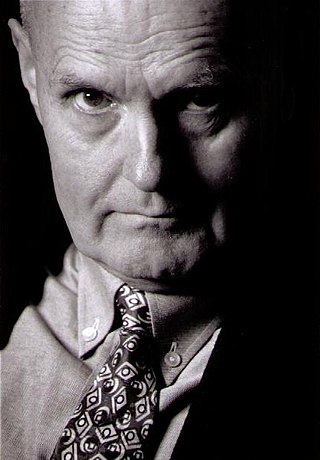Related Research Articles

Friedrich Siegmund-Schultze was a German academic working in theology, social pedagogy and social ethics, as well as a pioneer of peace movements.

Günter Kochan was a German composer. He studied with Boris Blacher and was a master student for composition with Hanns Eisler. From 1967 until his retirement in 1991, he worked as professor for musical composition at the Hochschule für Musik "Hanns Eisler". He taught master classes in composition at the Academy of Music and the Academy of Arts, Berlin. He was also secretary of the Music Section of the Academy of Arts from 1972 to 1974 and vice-president of the Association of Composers and Musicologists of the GDR from 1977 to 1982. Kochan is one of eleven laureates to have been awarded the National Prize of the GDR four times. In addition, he received composition prizes in the US and Eastern Europe. He became internationally known in particular for his Symphonies as well as the cantata Die Asche von Birkenau (1965) and his Music for Orchestra No. 2 (1987). His versatile oeuvre included orchestral works, chamber music, choral works, mass songs and film music and is situated between socialist realism and avant-garde.
Walther Siegmund-Schultze was a German musicologist. He was the elder brother of musicologist Hella Brock.
Max Paul Georg Willert was a German musicologist and baritone.
Hella Maria Brock was a German music educator, musicologist, and an internationally known Edvard Grieg scholar. Brock was professor of music and English studies at the Leipzig University. She was president, and honorary president of the Grieg-Begegnungsstätte in Leipzig until her death in 2020.
Christoph Sramek is a German music historian and music critic.
Karl Ottomar Treibmann was a German composer and music educator. From 1981 until his retirement in 2001, he was professor of music theory and Tonsatz at the Leipzig University. He was one of the representatives of modernity in the German Democratic Republic, whose great major works can be found in the areas of opera, symphony and chamber music.
Werner Wolf was a German musicologist and music critic. The acknowledged Wagner researcher was co-editor of Sämtlicher Briefe of the composer from 1967 to 1979. He also presented several opera performances. In 1981 he was appointed professor at the Leipzig University.
Klaus Zoephel was a German composer and conductor.

Fritz Hennenberg is a German musicologist and dramaturg.
Ruth Bodenstein-Hoyme was a German composer and piano teacher.
Kurt Hübenthal was a German operatic bass baritone, director and music teacher. He was professor for singing at the Hochschule für Musik Franz Liszt, Weimar.
Nathan "Noto" Notowicz was a German musicologist and composer.
Konrad Sasse was a German musicologist and Handel scholar.
Walter Draeger was a German composer and music educator. Er war Professor an der Staatliche Hochschule für Theater und Musik Halle and the Hochschule für Musik Franz Liszt, Weimar. In 1955, war er Mitinitiator der ersten Hallische Musiktage.
Werner Felix was a German music historian and Bach scholar. He was rector of the Hochschule für Musik Franz Liszt, Weimar and the University of Music and Theatre Leipzig as well as president of the Chopin-Gesellschaft of the DDR.
Martin Schneider was a German opera director and former Hochschullehrer.

Gabriele Meyer-Dennewitz was a German painter, graphic designer and academic scholar.
Joachim Herz was a German opera director and manager. He learned at the Komische Oper Berlin as an assistant to Walter Felsenstein. His major stations were the Leipzig Opera where he opened the new house with Wagner's Die Meistersinger von Nürnberg, Komische Oper and Semperoper in Dresden, where he opened the restored house with Weber's Der Freischütz in 1985. He staged many world premieres, and worked internationally. Herz was the first director to apply Felsenstein's concepts to Wagner's Der Ring des Nibelungen, staged in Leipzig from 1973 to 1976.
Siegfried Kurz was a German conductor, composer and academic. He influenced the musical scene of Dresden, as the conductor of the Semperoper for three decades, and a professor of conducting at the Hochschule für Musik Carl Maria von Weber. He conducted the world premiere of Udo Zimmermann's Levins Mühle.
References
- ↑ Dissertationen am Institut für Musikwissenschaft der Universität Leipzig, gko.uni-leipzig.de, retrieved: 6 November 2019.
- ↑ Das Musiktheater Carl Orffs on WorldCat
- ↑ Die Bedeutung des Dramaturgischen in der Orchestermusik der Deutschen Demokratischen Republik. on WorldCat